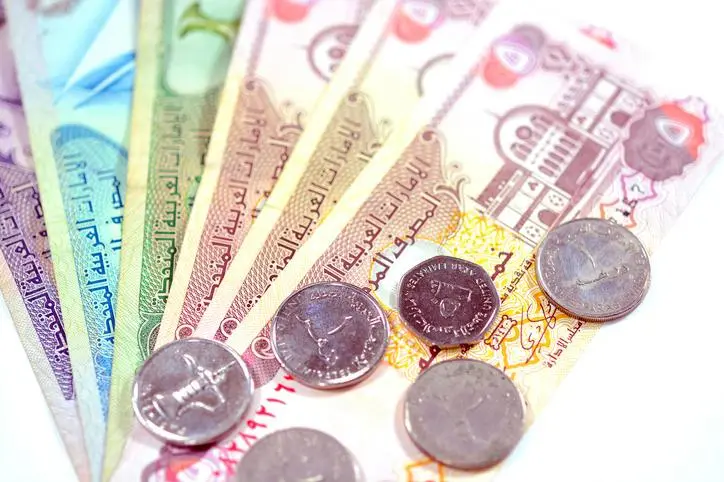PHOTO
Multiple surveys conducted recently in the UAE suggest that the majority of employees will get a salary increase this year.
However, for some — especially those in the mid-to-low income groups — the prospect of a raise remains a distant dream. Some have not even seen an increment in as many as seven years, prompting them to take the very difficult decision of sending their families back home to make ends meet.
Last month, Khaleej Times reported a survey conducted by the global human capital consultancy, Mercer, which revealed that the average salary in the UAE is expected to increase by 4 per cent this year, compared to a 2.3 per cent rise in inflation.
At the end of 2023, Khaleej Times also reported findings from the ‘Salary Guide UAE 2024’ survey by Cooper Fitch, indicating that 53 per cent of firms anticipate increasing their employees salaries in 2024. More than one-third, or 39 per cent, plan to raise wages by up to 5 per cent, almost one in ten by 6 to 9 per cent, and one in 20 (5 per cent) is preparing for an increase of 10 per cent or more.
Settling family back home
However, for Amir Mohammed (name changed), a 40-year-old Pakistani expat, such aspirations seem distant. He relocated to the UAE nearly seven years ago and joined a homeware production firm as a business development executive. “I joined my present employer in February 2016. Despite delivering good results and even being promoted to business development manager, my salary remained the same," said Mohammed.
Upon settling into his job, Mohammed relocated his family in 2017 and enrolled his children in school in the UAE. “The cost has been increasing every year. In the first year I came to the UAE, petrol prices were below Dh2. However, in 2018, they crossed over Dh2 and 50 fils. Similarly, with my children's school fees, it increased periodically, excluding uniforms, books and other essentials. The rent for my flat in 2017 was Dh19,000, and currently, the rent for the same flat is over Dh28,000,” said Mohammed, who currently resides in Sharjah.
Mohammed is the sole breadwinner for his family and also supports his widowed sister and her children in Pakistan.
Considering the escalating cost of living, Mohammed has decided to send his family back home to save for the future. “My children are in grades 6 and 8. If there is no increment in my salary, I have decided to send them back and enrol them in a school in Islamabad,” said Mohammed.
5 years without a raise
Many expatriates have complained about reading about salary increases in the news, only to welcome the new year with renewed energy. This is the case for Abu Fazal, a 48-year-old Egyptian expat, who moved to the UAE in 2012. “We have always heard about increments by the end of the year. However, the entire year passes by without any raise," said Abu Fazal.
He joined an automobile spare parts firm in Abu Dhabi with a salary of Dh2,500. After switching a few jobs in Abu Dhabi and Dubai, he finally became head of the sales division of a used car firm in 2017.
With a good salary package to support his family in the UAE, he relocated his family to Dubai and resided in Deira until 2020. “But during the Covid pandemic, I had to depend on my savings, most of which were exhausted as we did not receive a full salary. I had to cover the expenses of my family and extended family back in my hometown of Alexandria,” said Abu Fazal.
“It's been nearly five years since I have been heading the sales department, and there hasn't been any difference in my income. From our home in Deira, we have now moved to Al Nahda, Sharjah. I am also planning to enrol my children in schools that are comparatively cheaper. They are currently studying in one of the reputed schools in the UAE, and travelling from our residence takes them over an hour and a half,” he said.
Fuel expenses increase
Speaking on condition of anonymity, an Indian expat expressed disappointment over the situation. “I clearly remember paying just over Dh2 for a litre of petrol when I got my car and now I pay over Dh3. I have to set aside more than Dh400 extra monthly for a full tank," said Saeed (name changed), a media professional.
Similarly, the cost of living in the UAE has increased. “On average, my monthly expenses were about Dh2,500, excluding fuel. However, currently, it is over Dh3,500, which includes my accommodation, food, travel and other recreational activities,” he said.
With no salary increment for the last four years, he has been postponing his marriage, hoping for a raise every year.
Relocated family back home
Jacob, who has been working in the healthcare sector for nearly five years, has not seen any extra money in his account for the last six years. “Everything has increased, from fuel prices to rents, food, electric bills, public transportation fares, and even a cup of Karak. But salaries have remained constant for many of us,” said Jacob.
Unable to meet the rising expenses, Jacob has relocated his family to his hometown and is planning to move shortly to start his business journey.
“My children are grown up now and both have reached university age. I have already enrolled them in my home country. Until they adjust, my wife will be staying with them. And if I receive a raise this year, as per many reports, my wife will reside with me,” said Jacob.
Copyright © 2022 Khaleej Times. All Rights Reserved. Provided by SyndiGate Media Inc. (Syndigate.info).





















